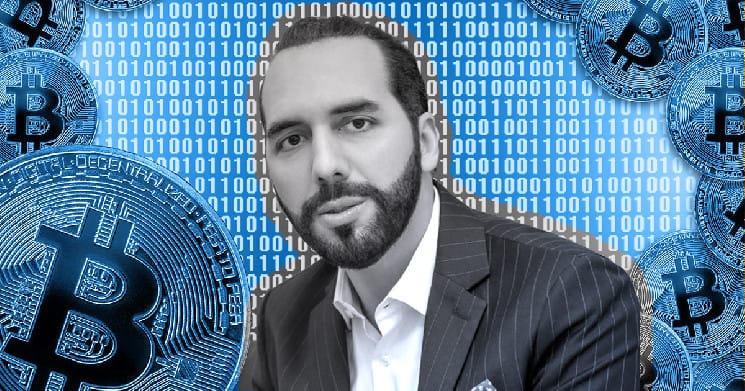El Salvador’s Bitcoin Claims Spark Controversy with IMF Agreement

El Salvador’s experiment with Bitcoin has taken a contentious turn, as conflicting narratives have begun to emerge between the government’s public statements and an International Monetary Fund (IMF) representative’s recent remarks.
In a video addressing El Salvador’s fiscal policies, the IMF speaker confirmed that the country is adhering to a specific performance criterion, committing to “non-accumulation of Bitcoin by the overall fiscal sector.” This pledge, described as a key indicator of El Salvador’s compliance with IMF agreements, suggests the government has agreed not to increase its Bitcoin holdings within public financial systems. Yet, El Salvador’s official Bitcoin tracker at bitcoin.gob.sv reports an uptick in the nation’s Bitcoin reserves, raising questions about the transparency and sources of these assets.
The Salvadoran government has been vocal about its ongoing Bitcoin purchases, regularly updating its holdings on the official website. However, the tracker offers little clarity on the origins of the cryptocurrency, leaving observers uncertain whether these are new acquisitions, recycled assets, or contributions from external sources, which some have rumored in the past to be loaned from Bitfinex (Tether) in attempts to boost their holdings appearance.
This lack of transparency fuels skepticism, particularly in light of the IMF’s assertion that El Salvador is honoring its commitment to refrain from accumulating Bitcoin in its fiscal sector. The apparent contradiction between the government’s actions and the IMF’s statements underscores a broader tension in El Salvador’s pioneering yet polarizing Bitcoin strategy.
The IMF just said that they can confirm that the El Salvador government has stopped accumulating bitcoin
— Pledditor (@Pledditor) April 27, 2025
But yet, the El Salvadoran government publicly claims they are still stacking sats
Somebody is lying. https://t.co/Hu8kjAg7Cj pic.twitter.com/ty193w5WCY
Unpacking the IMF Agreement and Its Implications
The IMF’s focus on non-accumulation reflects concerns about the risks tied to Bitcoin’s volatility and its potential impact on El Salvador’s fiscal stability. By limiting the government’s ability to amass Bitcoin within public finances, the IMF aims to safeguard against liabilities that could threaten economic stability or complicate debt sustainability. This conditionality likely forms part of a broader set of criteria tied to El Salvador’s engagement with the IMF, possibly linked to financial assistance or economic policy evaluations. The emphasis on the “overall fiscal sector” suggests that the restriction applies specifically to government entities, potentially leaving room for private sector or individual Bitcoin activities outside the scope of the agreement.
El Salvador’s compliance, as confirmed by the IMF, indicates a delicate balancing act. While the nation has embraced Bitcoin as legal tender to foster financial inclusion and attract investment, the government appears constrained in its ability to directly bolster its reserves through public funds. This raises questions about the mechanics of the reported Bitcoin purchases. Are these holdings funded through non-fiscal channels, such as private donations or external partnerships? Or could there be a discrepancy in how compliance is interpreted or reported? Without detailed disclosures, the public is left to speculate about the true nature of El Salvador’s Bitcoin strategy.
The controversy highlights the challenges of integrating cryptocurrency into national policy under international scrutiny. For El Salvador, the stakes are high. Non-compliance with IMF criteria could jeopardize future financial support or strain relations with global economic institutions. Conversely, the government’s pro-Bitcoin stance has become a hallmark of its economic identity, appealing to crypto enthusiasts and investors worldwide. As El Salvador navigates this, greater transparency about its Bitcoin acquisitions could help reconcile conflicting narratives and clarify its commitment to both innovation and fiscal responsibility.

